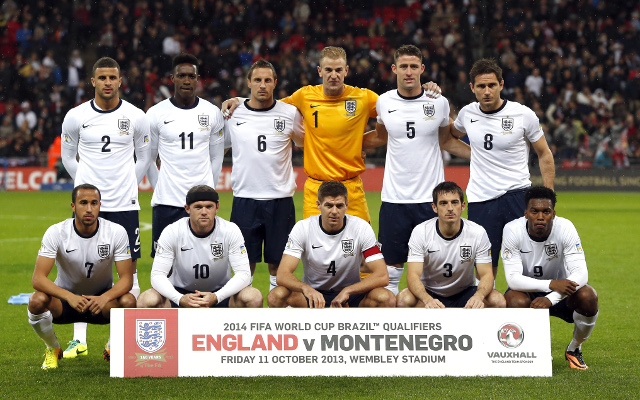Would copying the league systems of Spain and Germany be beneficial for the England national team?
SEE ALSO: Best young football players in the world!
The concept of introducing Premier League ‘B’ teams has reared its ugly head once again, with former England defender Danny Mills claiming that young English talent will move abroad if the idea is not implemented.
After an initial proposal was put forward several months ago, the idea was widely criticised, particularly by clubs in and below the football league.
However, following England’s disappointing World Cup campaign this summer, which saw them eliminated at the group stage for the first time since 1958, Mills – one of seven people chosen by Football Association chairman Greg Dyke to sit on the FA’s commission, which has the task of improving the fortunes of the England team – has called, once again, for change.
He said: “If we don’t have ‘B’ teams in this country, all our best youth players will go abroad and we will lose out. Some might say that was not a bad thing and that it could enhance them but surely we want to develop these players in our country.
“Why are a club like Manchester City spending £200 m on a new academy if they are not convinced they can bring young players through? When they do, they need a pathway. They need somewhere to play.”
In response, we would offer these reminders:
Young Talent Does Exist…
At this summer’s World Cup, only five of England’s players were over the age of 30, and ten were 24 or younger. England have a talented group of young players that, if managed correctly, have every chance of being successful in the future. What is important is that they get the opportunity to play at the highest level possible. As has been discussed in the past, there is little point picking a player based on the club they play for, if they’re simply there sitting on the bench. Reassuringly, the likes of Daniel Sturridge, Jordan Henderson, Raheem Sterling, Jack Wilshere, Ross Barkley and Luke Shaw have been playing week in, week out, and could form the heart of the England set-up for years to come.
‘Big’ Clubs need to give young players a chance to shine…
One of the supposed plus points of the ‘B’ team plan would be the opportunity for young players to play competitive football against a variety of lower league and conference teams. However, what is the difference between fielding a team of youngsters in a lower division, or sending youngsters out on loan to a lower division? Players need an opportunity to play alongside those more experienced than them, and learn from their peers. Premier League scouts have developed a habit of plucking talented young players out of lower league clubs at a young age and then handing them several years of youth and reserve team football. Clubs need to give these players a chance to develop, and if that means they return to their former club on loan then so much the better.
The plan would be unfair on non-league clubs…
It’s all well and good saying a ‘League 3’ would be formed between League 2 and the Conference, but good luck with implementing it. Suddenly, a host of teams would need to be promoted to fill the void in the new division. That brings with it a whole host of issues for non-league teams, many of which struggle to cope with the financial demands of long-distance travel etc. Add on top of that the fact that attendances would dwindle and interest would fade, you are virtually crushing the livelihood of thousands of small-time clubs and their employees. A non-league fan does not want to see their team play Manchester United B in front of a couple of hundred people, they want to see a passionate local derby where several thousand die-heart fans are as desperate to see their team win as any Premier League fan. Traditional competitions such as the FA Cup would be made a mockery of, as half a division of teams would not be allowed to compete, while promotion and relegation issues could see the ‘B’ teams spread randomly throughout the English footballing pyramid.
The issues lie much deeper…
The main reason that national teams are successful is because they are well trained to a system befitting their national identity. Brazilians are born and bred to play the same way, they all understand each other. The Germans are regularly compared to a well-oiled machine, consistently performing no matter the personnel. The English problem goes back to grassroots, the standard of coaching, and the approach of Premier League academies. A ‘B’ team league would offer little change in terms of giving young players their chance to play top level football.
For those that blame the lack of English success on the lack of ‘World Class’ stars available to us, then it’s worth looking at the World Cup performances of Chile, Colombia and Costa Rica, who have at best a handful of players between they who would be regular starters in the Premier League. The FA puts only £12 m a year into grassroots facilities from a revenue of £318 m. The financial structure is much too heavily waited towards the Premier League teams, and if more investment is not made at the grassroots level of the game, then so England’s chances of success will continue to dwindle.

COMMENTS